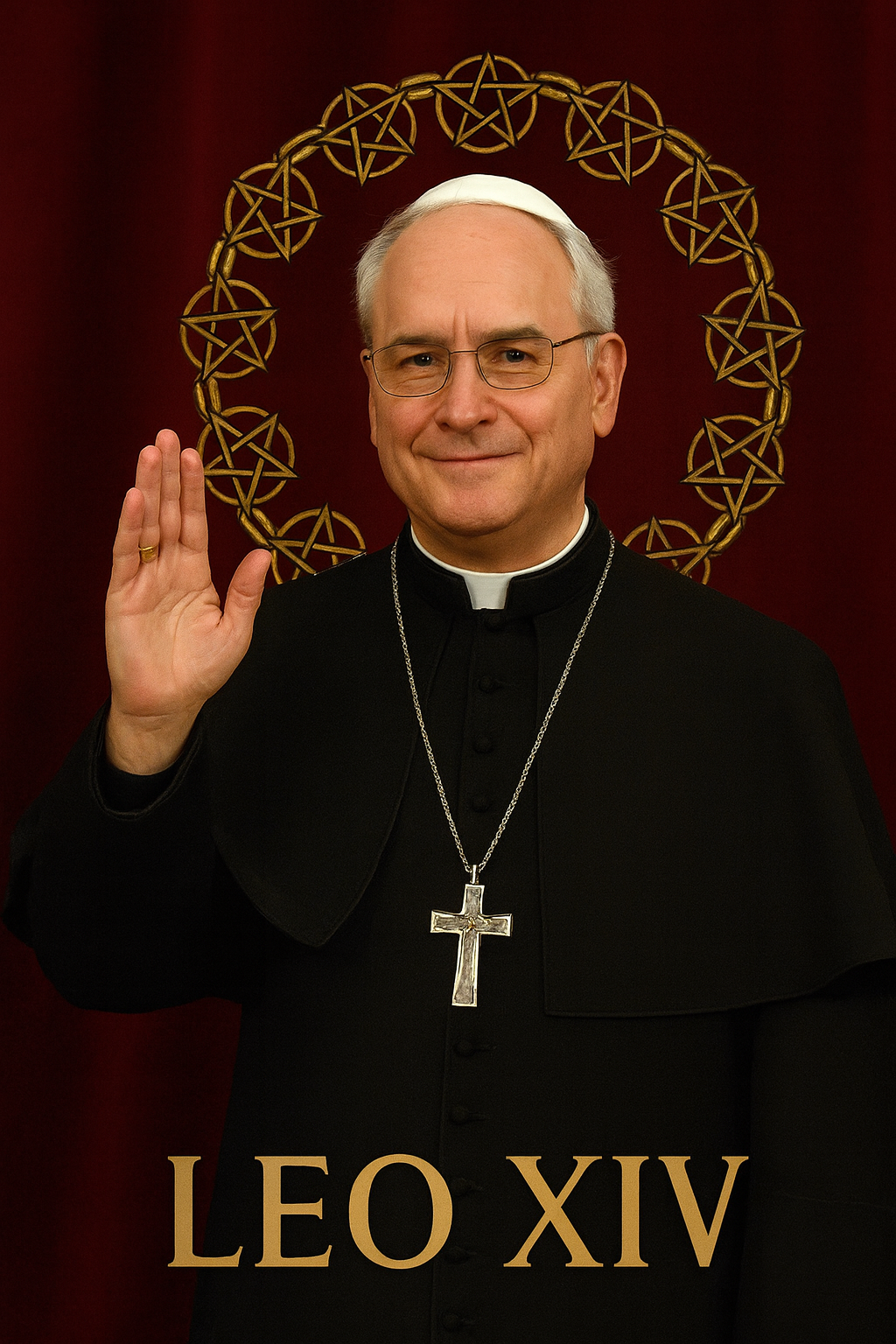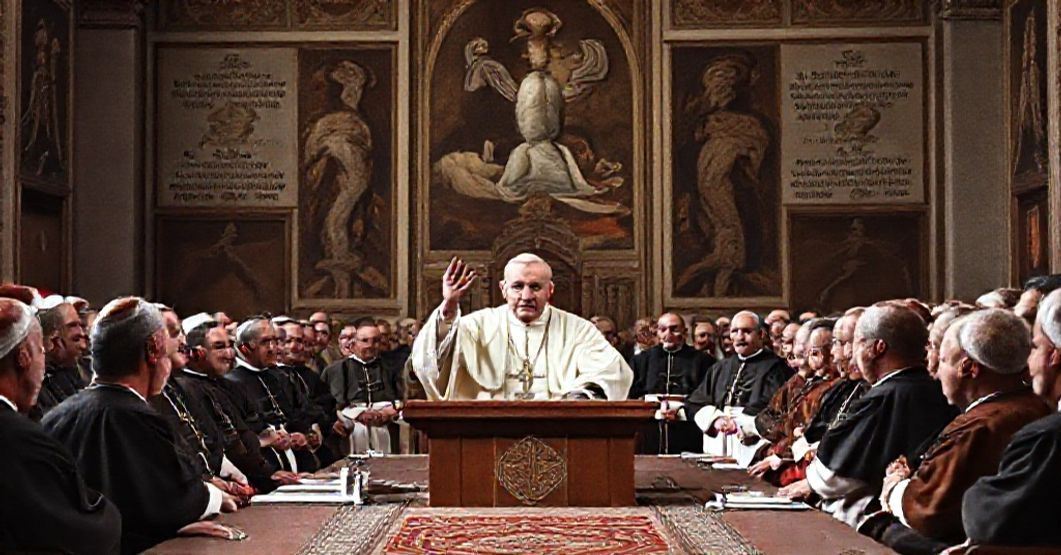Antipopes of the Antichurch



















Timeline of this heretical pontiff
Encyclical Letters
+ 15 posts1959
+ 7 posts1961
+ 4 posts1962
+ 2 posts1963
+ 2 postsApostolic Exhortations
+ 3 postsApostolic Constitutions
+ 93 posts1958
+ 6 posts1959
+ 87 postsMotu Proprio
+ 15 posts1958
+ 1 posts1959
+ 1 posts1962
+ 11 postsApostolic Letters
+ 151 posts1958
+ 4 posts1959
+ 63 posts1960
+ 78 posts1961
+ 1 posts1962
+ 4 posts1963
+ 1 postsSpeeches
+ 99 posts1958
+ 2 posts1959
+ 26 posts1960
+ 29 posts1961
+ 16 posts1962
+ 24 postsMessages
+ 6 posts1959
+ 4 postsHomilies
+ 4 postsLetters
+ 152 posts1958
+ 1 posts1959
+ 48 posts1960
+ 32 posts1961
+ 31 posts1962
+ 30 posts1963
+ 10 postsNot categorized
+ 1 posts1958
+ 1 postsNews feed


Paenitentiam agere (1962.07.01)
Paenitentiam agere is a Latin circular letter of the antipope John XXIII, issued shortly before the convocation of the so‑called Vatican II, ostensibly exhorting the hierarchy and faithful to intensified prayer and penance so that “graces” may descend upon the forthcoming council; it invokes Scriptural and patristic calls to conversion, recalls precedents before earlier councils, and details internal and external works of penance as preparation for a hoped-for “renewal” and “new age” for the Church. In reality, this text is a calculated instrument for sacralizing the conciliar revolution in advance, hijacking genuine Catholic ascetic doctrine as a pious alibi for the planned demolition of the public reign of Christ the King and the immutable Magisterium.


Pacem in terris (1963.04.11)
Pacem in terris presents itself as a universal manifesto for peace: starting from the “order established by God,” it develops a catalogue of human rights and duties, affirms the divine origin of public authority, calls for disarmament and global cooperation, and culminates in an appeal addressed not only to Catholics but explicitly to “all men of good will,” with a strong endorsement of international institutions and a nascent world authority, presented as guarantors of universal peace, justice, truth, charity, and freedom. The entire document clothes a naturalistic, anthropocentric, and proto-globalist ideology with fragments of pre-1958 papal language, twisting them into a programmatic displacement of the reign of Christ the King by the cult of human dignity and the sovereignty of the United Nations system.


Allocutio ad Moderatores Congregationis Redemptoristarum (1963.02.08)
The text is a brief allocution of John XXIII to the superiors and members of the Congregation of the Most Holy Redeemer (Redemptorists) gathered in Rome for their General Chapter in February 1963. He flatters their growth, exhorts them to revise their Rule and Constitutions to adapt them to “the needs of the times,” warns (in words) not to bend to worldly spirit while in practice urging aggiornamento, presents Saint Alphonsus as a flexible legislative model, and links their renewal to the spirit of the ongoing Vatican II, asking for prayers and sacrifices for the Council. In essence, this address is a polished manifesto of the nascent conciliar program: using the language of fidelity to disguise the systematic re-engineering of religious life and doctrine according to the demands of the world.


Allocutio Ioannis XXIII ad Commissionem Centralem (1962.01.23)
The allocution of John XXIII of 23 January 1962 is a brief Latin address to the members of the Central Preparatory Commission of the so‑called “Second Vatican Council.” He congratulates them on eight months of work, praises their concord, invokes imagery of joy and service inspired by John Chrysostom, lists the main preparatory topics (doctrine, morals, sacraments, liturgy, Eastern questions), notes the multitude of proposals submitted, and announces two documents: one urging universal priestly prayer via the Divine Office for the success of the Council, and another promoting renewed study and use of Latin in seminaries. He closes by requesting prayers for himself and for the coming “great event.”
Varia
Announcement:
– News feed –implemented
– Antipopes separate web sites with their all documents refutation – in progress
